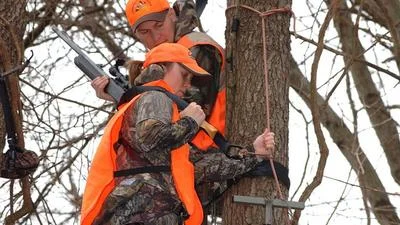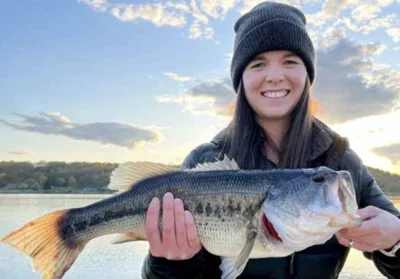Ice fishing enthusiasts are gearing up for a promising winter season.
Both the Farmers' Almanac and the National Oceanic and Atmospheric Administration (NOAA) offer differing predictions for the state's winter weather, but both point to exciting opportunities for anglers on Ohio's frozen lakes.
The Farmers Almanac forecasts cold, snowy conditions for Ohio from Dec. 19, 2024, to Jan. 18, 2025, with a mix of rain, snow, gusty winds and blustery weather throughout the period.
The Almanac forecasts below-normal temperatures and snowy conditions, with the coldest outbreak expected from Jan. 20-27, potentially leading to a "Big Freeze" for the Ohio Valley and Midwest lasting into early February, which would bring a sharp drop in temperatures across much of the U.S.
Meanwhile, NOAA predicts milder conditions across much of the state, particularly in central and eastern Ohio, where temperatures could rise 40-50% above average.
Despite these contrasting forecasts, Ohio anglers are preparing for another ice fishing season.
“I’m all for hoping that they will be correct and we get some time on the ice again finally,” one fisherman posted on the Ohio Game Fishing forum.
Lake Knox is known to provide excellent opportunities for fishing, particularly in areas near the old creek channel and stump field, which are known to produce good catches of perch, crappie and bluegill.
As ice forms, anglers will be able to take advantage of the lake's growing fishery, with increasing numbers of crappie and other species showing promise.
For safety, anglers should ensure the ice is at least five to six inches thick before venturing out.
It is also recommended to drill multiple holes at varying depths to increase chances of success, using light gear and small baits such as ice jigs with wax worms.
The Ohio Department of Natural Resources advises ice fishermen to prioritize safety, especially as no ice is ever considered "safe."
While clear ice is stronger and safer than cloudy ice, it’s essential to be cautious and listen for the sounds of ice expansion, which can sometimes mimic dangerous cracking noises.
Additionally, fish remain active through the winter, albeit with reduced appetite, so smaller bait and slower presentations are recommended.
Before heading out, anglers should check regulations, pack appropriately for cold weather, and consider leaving a "float plan" with someone for added safety.







